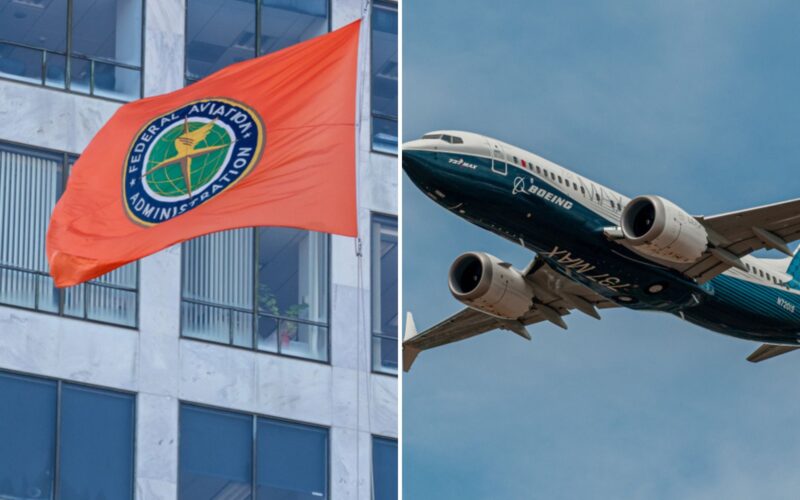The Federal Aviation Administration (FAA) said that it will continue to hold Boeing accountable after reviewing the company’s roadmap to fix its systemic safety and quality-control issues.
Following the January 5, 2024, Alaska Airlines Boeing 737 MAX door plug incident, FAA Administrator Mike Whitaker directed the aircraft manufacturer to develop a comprehensive action plan to set a new standard for safety and how the company conducts business.
According to Boeing, the roadmap is necessary to reset the safety culture at Boeing, as well as address the findings of the FAA’s special audit and the expert review panel report.
Over the last three months, Boeing developed the proposal with detailed input from the FAA throughout the process. Boeing said that in creating the roadmap, it took a hard look at its quality practices in its factories and across our production system.
The FAA decided to continue monitoring Boeing’s progress to improve issues after a three-hour meeting with senior Boeing leaders at FAA headquarters.
“Today, we reviewed Boeing’s roadmap to set a new standard of safety and underscored that they must follow through on corrective actions and effectively transform their safety culture,” Whitaker said in a statement.
“On the FAA’s part, we will make sure they do and that their fixes are effective. This does not mark the end of our increased oversight of Boeing and its suppliers, but it sets a new standard of how Boeing does business,” Whitaker added.
Whitaker said that during the meeting with Boeing, he reiterated that the FAA needs to see a strong and unwavering commitment to safety.
“Systemic change isn’t easy but in this case is absolutely necessary, and the work is never really done when it comes to the safety of the flying public – from Boeing, airlines, or the FAA. But we will hold the company accountable every step of the way to make sure these changes happen,” Whitaker said.
The agency required Boeing to provide a detailed update on completed actions as well as mid- and long-term actions Boeing will take. These actions include:
- Strengthening its Safety Management System, including employee safety reporting
- Simplifying processes and procedures and clarifying work instructions
- Enhanced supplier oversight
- Enhanced employee training and communication
- Increased internal audits of production system
Additionally, Boeing had to identify the results of completed actions and how to monitor them and future actions to validate progress and sustain the changes.
The FAA also provided additional actions it had taken as part of its aggressive oversight of Boeing and its suppliers. These include:
- Immediately grounding 171 Boeing 737-9 MAX aircraft operated by U.S. airlines or in U.S. territory.
- Increased onsite safety inspector presence at Boeing’s facility in Renton, Washington, and Spirit AeroSystems’ facility in Wichita, Kansas.
- Halted production expansion of the Boeing 737 MAX.
- Administrator Whitaker visiting Boeing’s factory floor in Renton, Washington, to see the 737 production line and hear directly from Boeing engineers, mechanics, and others about quality control processes. According to the FAA, Whitaker has actively encouraged all whistleblower complaints, and the FAA investigates every single one.
- Concluded an audit of Boeing’s production line that went above and beyond FAA’s standard inspection process. The FAA identified non-compliance issues in Boeing’s manufacturing process control, parts handling and storage, and product control. Our audit is complete but it is part of an ongoing investigation, and we cannot release further details.
- The FAA continues to issue airworthiness certificates for every newly produced Boeing 737 MAX.
Boeing President and CEO Dave Calhoun said that many of the roadmap and proposed actions from the FAA are underway and that the Boeing team is committed to executing on each element of the plan.
“It is through this continuous learning and improvement process that our industry has made commercial aviation the safest mode of transportation. The actions we are taking today will further strengthen that foundation,” Calhoun said in a statement.
“We thank Administrator Whitaker and the FAA team for their feedback today and we will continue to work under their oversight as we move forward.”

